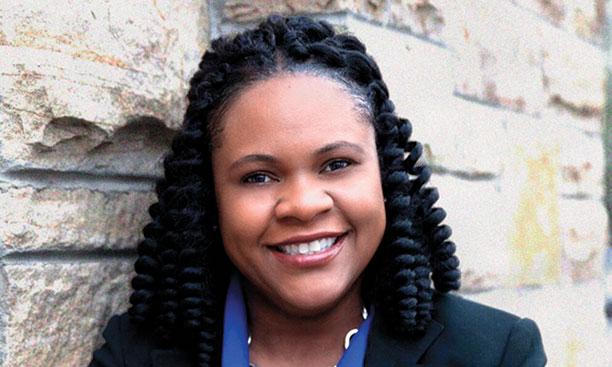
Yolanda Pierce ’94 was appointed last summer as the first female dean of the Howard University School of Divinity. Pierce takes the helm at a time when Americans are less likely to identify as being affiliated with a particular religion than in years past, the country is divided by religious and racial conflicts, and women continue to be underrepresented among the clergy.
Pierce is used to breaking the mold. She enrolled at Princeton at the age of 16 and was the first in her family to graduate from college. She studied under Cornel West *80 and then earned her master’s and Ph.D. degrees from Cornell. After that, she served as associate professor at Princeton Theological Seminary, where her research focused on race, religion, and literature.
Pierce spoke with PAW about her work and the challenges facing her theology and future clergy.
You are the first woman to serve as dean in the school’s 150 years. How does your gender inform your work?
The fact that in 2017 I became the first woman in this role is a compliment and an indictment. I think gender, particularly in religious spaces, is a really, really complicated issue. People have different beliefs, perspectives, and theologies. All I know is I am deeply indebted to the men and women who came before me and opened up spaces for women to serve.
Enrollment at many seminaries has declined, as have the number of Americans who identify with a particular religion. What is driving that?
Churches are in decline — fewer and fewer people are members of churches, so fewer pastors are needed. And fewer people think about a religious vocation as a viable career choice, so the enrollment numbers are declining. I think the question for those of us in theological education is: How do we reinvent ourselves?
What will it look like?
[Partly] we will become less focused on the American context. There are areas in Asia, Africa, South America where there has been an explosion of participants in various religious traditions. The only way we have often talked about religion is, “What are American Christians doing?” That’s no longer a question we can ask unless we are also willing to ask, “What are Christians in Ghana doing?”
We [also] have to think more comprehensively about the study of religion not just being about belief and theology. Some people don’t necessarily have beliefs, but they still perform rituals of faith. You can be an atheist but you are Jewish and you practice certain behaviors. How do you classify that? How do you minister to people who find themselves without a belief system and yet [have] religious practices precious to them? We have got to be much more global, and we have got to be much more open to the shape that religious belief takes.
Did your own faith change or become molded by a theological education?
My journey is very similar to my students’. Any higher education is meant to challenge you, and so my faith was challenged and tested. You learn things, and you have doubts and unbelief. And you’re like, “I’m not sure what I believe anymore.” I think that is the healthiest and most important process that any person of faith can go through. Faith is that process of asking the tough questions, demanding answers for the tough questions, living with doubt, but being willing to make the journey.
Interview conducted and condensed by Naomi Nix ’10
